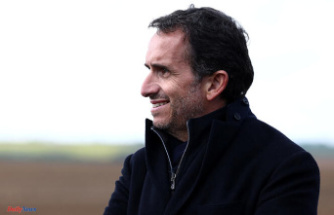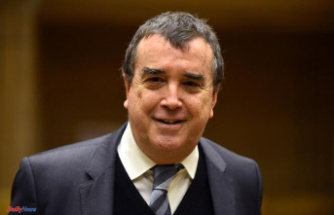After the heavy losses at the end of last week, the US stock exchanges are showing significant premiums. The US stock market continues its recent zigzag course.
Positive stimulus from the banking sector and the reversal in the UK tax plans lifted sentiment on Wall Street. The leading index Dow Jones Industrial closed 1.86 percent higher at 30,185.82 points. For the market-wide S
In particular, a better-than-expected result at the second-largest US credit institution, Bank of America, caused a stir, pushing its shares up by more than six percent. "Bank of America benefited from a higher interest rate environment in terms of both new loan yields and growing depositor numbers," said Siddharth Singhai, chief investment officer at Ironhold Capital. Rivals JPMorgan, Morgan Stanley, Citigroup and Wells Fargo were up between 1.5 and 4.7 percent.
The decline in profits at the big US money houses had dampened the mood on Wall Street at the end of the week. The credit institutions are having trouble with the stock market turbulence that paralyzed investment banking. At the same time, more funds must be made available to cover loan defaults. This also affected Bank of America, which has a large portfolio of customer deposits compared to its competitors and has benefited greatly from the rise in interest rates.
"The results show the strength of a strong US store network," said Oppenheimer analyst Chris Kotowski. The shares of the US bank Goldman Sachs, which will present its figures on Tuesday, rose by around two percent. According to an insider, the investment bank is about to undergo a major transformation that will combine investment banking with trading.
The reversal of the controversial tax plans in Great Britain also caused more willingness to take risks. The new British finance minister, Jeremy Hunt, announced on Monday that almost all of Prime Minister Liz Truss' tax plans would be reversed. The controversial debt-financed tax cuts are off the table. After the turbulence of the past week, the Dax then rose by 1.7 percent to 12,649 points, the EuroStoxx50. STOXX50E gained 1.8 percent to 3443 points. The pound rose more than 2 percent to $1.1426.
The prospect of a more sustainable budgetary policy prompted investors to turn to British government bonds again. This pushed yields on ten-year British bonds back below four percent to as high as 3.914 percent. At the same time, yields on ten-year US bonds fell to as much as 3.91 percent. Federal bond yields also fell to as low as 2.212 percent after hitting their highest level since August 2011 at 2.423 percent last week.
In terms of stocks, Archaea Energy shot up more than 53 percent to $25.95. The British oil company BP is speeding up its conversion to a green electricity producer and is swallowing up the US biomethane producer for up to 4.1 billion dollars. The transport service provider Lyft was able to score with investors by increasing the service fee. The titles of the Uber rival attracted around seven percent. Lyft upped the fee its U.S. drivers pay to the company to cover higher insurance costs. According to the company, the average increase is less than 50 cents per trip. Uber gain almost five percent in the slipstream.
Media mogul Rupert Murdoch is reconsidering the merger of Fox Corp and News Corp nearly a decade after their split. According to people familiar with the matter, both companies recently established special board committees to review a possible transaction and evaluate potential financial terms. The talks are at an early stage. News Corp owns Dow Jones, publishes Dow Jones Newswires and the Wall Street Journal, and news organizations in the UK and Australia. Fox Corp A-shares fell 9.4 percent, while News Corp A-shares rose 3.4 percent.












